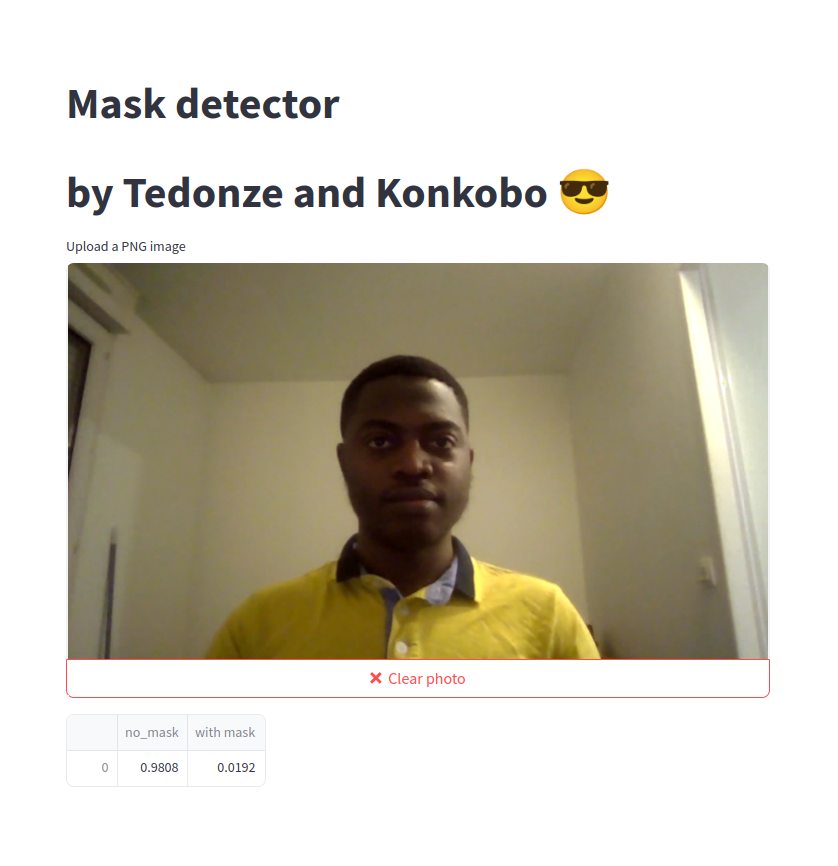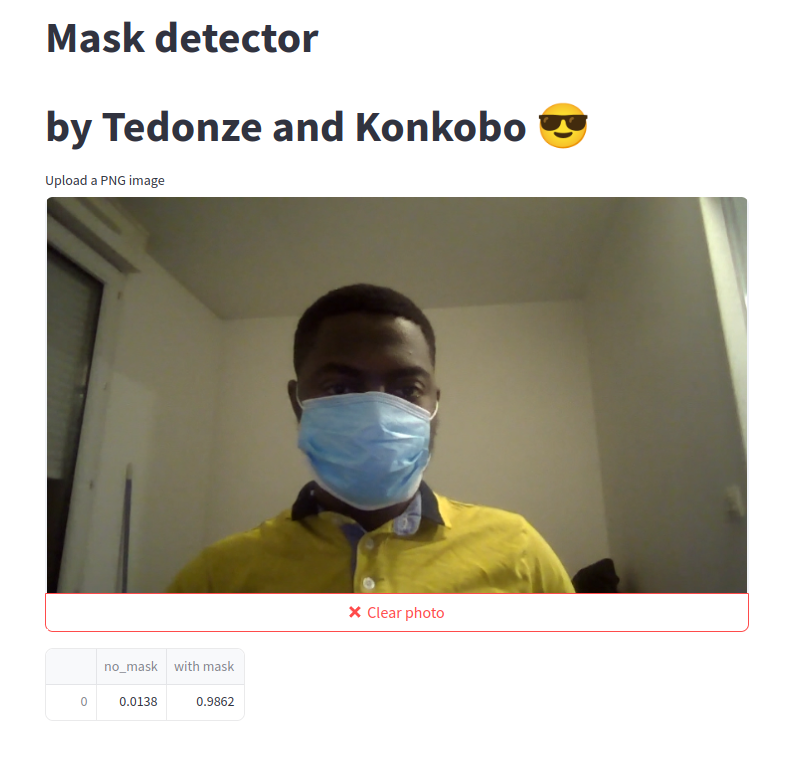The goal of this project is to implement an end-to-end machine learning pipeline to detect if a person wears a mask in an image. Concretely it can be used in pratice to check if someone is respecting sanitary measures about COVID-19.
- Clean code & Reproductibility
- A vision model trained from scratch to predict presence of wearable mask in an image
- Compliance with best pratices in ML process
- Deployement using a common-used framework
The dataset used, Covid-19-PIS Dataset, is a collection of images stratified in two classes
which are the groups of images of people wearing a mask to comply to COVID-19 measures and
a group of images of people with their faces uncovered. See below in the reference
covid-19-pis_dataset for more details.
The model aims to be a supervised one since images labels are known. Built with pytorch framework, the vision model is neural-nets based with the following architecture .
We evaluate our model on the validation set. It sounds good !!!
AUC on validation set : 0.9957138594254401
Cross entropy loss on validation set: 0.073
Hands-on machine Learning with ScikitLearn
@misc{ covid-19-pis_dataset,
title = { Covid-19-PIS Dataset },
type = { Open Source Dataset },
author = { PyImageSearch },
howpublished = { \url{ https://universe.roboflow.com/pyimagesearch/covid-19-pis } },
url = { https://universe.roboflow.com/pyimagesearch/covid-19-pis },
journal = { Roboflow Universe },
publisher = { Roboflow },
year = { 2023 },
month = { mar },
note = { visited on 2023-12-02 },
}




